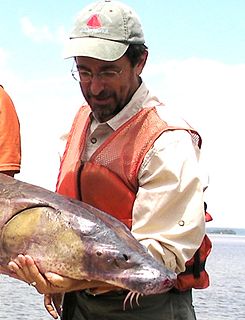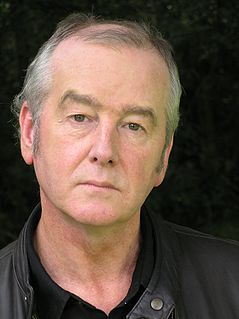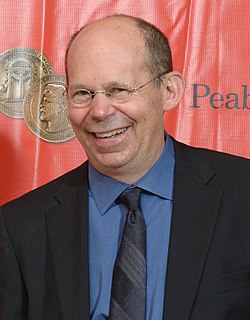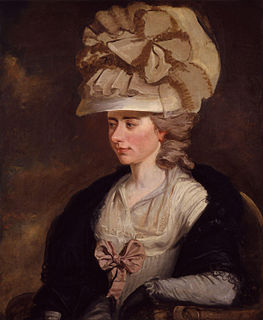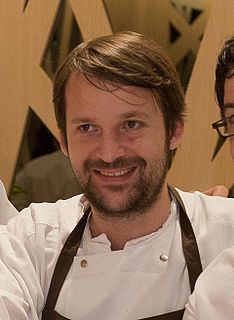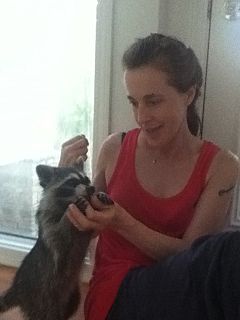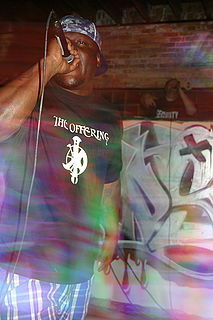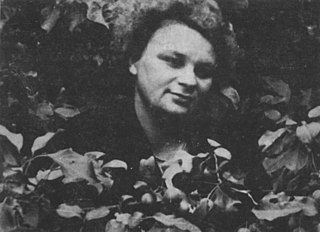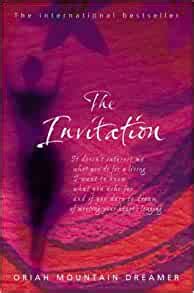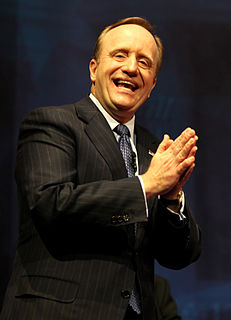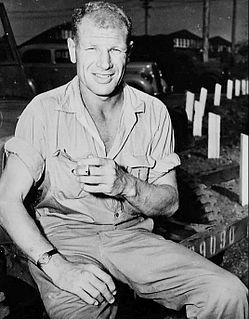Top 538 Journal Quotes & Sayings - Page 9
Explore popular Journal quotes.
Last updated on April 15, 2025.
The survey of more than 100 waterways downstream from treatment plants and animal feedlots in 30 states found minute amounts of dozens of antibiotics, hormones, pain relievers, cough suppressants, disinfectants and other products. It is not known whether they are harmful to plants, animals or people. The findings were released yesterday on the Web site of the United States Geological Survey, which conducted the research, and in an online journal, Environmental Science and Technology.
I realized Michael was right. I mean, I am always writing in this journal. And I do compose a lot of poetry, and write a lot of notes and emails and stuff. I mean, I feel like I am always writing. I do it so much, I never even thought about it as a talent. It's just something I do all the time, like breathing.
I open journal, I look at the picture and I remember where I was. And I remember the time of day, the temperature of the air, what music was playing, or who was talking to me, or who was looking over my shoulder and what conversations we had and the smells of the earth and the time of year it was. It's all there for me in a way that we don't get looking at a snapshot. Most of us look back at a snapshot from ten years ago and say, where was that? We don't even remember where we were.
She was unaware that she was somewhat of a celebrity up in heaven. I had told people about her, what she did, how she observed moments of silence up and down the city and wrote small individual prayers in her journal, and the story had travelled so quickly that women lined up to know she had found where they’d been killed. She had fans in heaven..... Meanwhile, for us, she was doing important work, work that most people on Earth were too frightened even too contemplate.
Then what shall I write? I can't just write that this happened then this happened then this happened to boring infinitum. I'll let my journal grow just like the mind does, just like a tree or beast does, just like life does. Why should a book tell a tale in a dull straight line? Words should wander and meander. They should fly like owls and flicker like bats and slip like cats. They should murmur and scream and dance and sing.
I... recommend to every one of my Readers, the keeping a Journal of their Lives for one Week, and setting down punctually their whole Series of Employments during that Space of Time. This kind of Self-Examination would give them a true State of themselves, and incline them to consider seriously what they are about. One Day would rectifie the Omissions of another, and make a Man weigh all those indifferent Actions, which, though they are easily forgotten, must certainly be accounted for.
I don't think I'm an angry person. I think I'm a person who's angry. I'm angry at the Bush administration; I'm angry at the right wing media. And by that I don't mean the media is right wing. I mean, there is a part of the media that's not the mainstream media. That's Fox, that is 'The Wall Street Journal' editorial page.
These CEOs, man ... If you're that ruthless, you're a scary dude. I tell you, now when I walk past a little gang banger, I don't even blink. But if I see a white dude with a Wall Street Journal, I haul ass. Before I walk past the Arthur Andersen building, I cut through the projects. If you cut through the projects, you may just lose what you have on you that day. I ain't never been mugged of my whole future.
If you hear a good idea, capture it; write it down. Don't trust your memory. Then on a cold wintry evening, go back through your journal, the ideas that changed your life, the ideas that saved your marriage, the ideas that bailed you out of bankruptcy, the ideas that helped you become successful, the ideas that made you millions. What a good review-going back over the collection of ideas that you gathered over the years. So be a collector of good ideas for your business, for your relationships, for your future.
There's something exhilarating about telling stories that haven't been shared before and haven't been told publicly before. The last thing I want to be doing is telling stories other people have already told. That's not to say that there isn't important work out there about people in positions of power, but I know my strength. Even when I was at the Wall Street Journal 10 years ago, this is what I wrote about.
I never pretend to be so superior a being as to be above having and indulging a hobby horse [her journal writing], and while I keep mine within due bounds and limits, nobody, I flatter myself, would wish to deprive me of the poor animal: to be sure, he is not formed for labour, and is rather lame and weak, but then the dear creature is faithful, constant, and loving, and though he sometimes prances, would not kick anyone into the mire, or hurt a single soul for the world--and I would not part with him for one who could win the greatest prize that ever was won at any races.
The stains could be seen only in the sunlight, so Ruth was never really aware of them until later, when she would stop at an outdoor cafe for a cup of coffee, and look down at her skirt and see the dark traces of spilled vodka or whiskey. The alcohol had the effect of making the black cloth blacker. This amused her; she had noted in her journal: 'booze affects material as it does people'.
I started to change. It was sort of a restaurant mid-life crisis, you could say. I lost a lot of confidence, not so much as a father or as a friend, but as a boss, as a chef that's to make decisions throughout the day all the time. I just slowly started burning out. Once you lose your confidence like that, you start being angry in the kitchen. I couldn't recognize myself anymore. I started writing the journal. It was never meant to be a book, but the editor at Phaidon read parts of it. As editors do, I guess.
I'd been reading Daniel Defoe's Journal of the Plague Year when the [1992 Los Angeles] riots broke out and I began to see them both - L.A. and the London plague - as the same event. A time of crisis. A time when rich and poor get thrown together - and, suddenly one sees alternatives. I began to think about what happens when the containment of a presumed danger through the regimentation of space breaks down, such as when South-Central L.A. began to invade Beverly Hills.
People, I just want to say, you know, can we all get along? Can we get along? Can we stop making it, making it horrible for the older people and the kids?
A man cannot know himself better than by attending to the feelings of his heart and to his external actions, from which he may with tolerable certainty judge "what manner of person he is." I have therefore determined to keep a daily journal.
In the learned journal, in the influential newspaper, I discern no form; only some irresponsible shadow; oftener some monied corporation, or some dangler, who hopes, in the mask and robes of his paragraph, to pass for somebody. But through every clause and part of speech of the right book I meet the eyes of the most determined men; his force and terror inundate every word: the commas and dashes are alive; so that the writing is athletic and nimble,--can go far and live long.
I keep a journal. I like myself better when I just pour it out. It's easier sometimes, even if you write on a piece of paper and then tear it up, just to vent it out. Because in the past I have sometimes used interviews as therapy, and then I've regretted it because I'm going, "Wait a second, that is not for the world to know. That's for me to know."
The Democratic Party's problem is that voters don't believe the president's claims that the economy is thriving. Even people with jobs feel apprehensive. Paychecks are flat, growth anemic, and people are worried about their children's prospects. Mr. Obama had a 38% approval on handling the economy in the Sept. 9 Fox News poll. In the Sept. 7 NBC News/Wall Street Journal poll, 67% believe America is on the wrong track.
But it's never just been the journals that have made the difference, I don't think. It's also the way the students are with one another . . . the way they talk about books and authors and themselves. Not just their problems, but their passions too. The way they form a little society and discuss whatever matters to them. Books light the fire-whether it's a book that's already written, or an empty journal that needs to be filled in.
Arctic-dwelling Eskimos have no choice but to eat large amounts of meat and animal fat. But let's get our facts straight: according to the American Journal of Clinical Nutrition, Eskimos also have the highest incidences of heart disease and osteoporosis in the world and, in general, short life spans. Perhaps that is something to consider when we are faced with the choice of what to eat for dinner and unlike Eskimos most of us do have choices.
My children haven't read 'Winter Journal'. They have read some of my work, but I really don't foist it on them. I want them to be free to discover it in their own good time. I think reading an intimate memoir by your father - or an intimate autobiographical work, whatever we want to call this thing - you have to come at it at the right moment, so I'm certainly not foisting it upon them.
Writing in a journal each day, with a structured, strategic process allows you to direct your focus to what you did accomplish, what you're grateful for, and what you're committed to doing better tomorrow. Thus, you more deeply enjoy your journey each day, feel good about any forward progress you made, and use a heightened level of clarity to accelerate your results.
More than anything, the journal wanted. It wanted more than it could hold, more than words could describe, more than diagrams could illustrate. Longing burst from the pages, in every frantic line and every hectic sketch and every dark-printed definition. There was something pained and melancholy about it.
I wrote before I could write. I got my hands on a journal, maybe a hand-me-down; I had three older siblings. My first entries are in the handwriting of the sister closets in age (5 years my senior). She must have gotten tired of my dictations because she gave up and then my blocky scrawl shows up. I wrote plays as a kid mostly.
I am a Christian resident of New York City. I simply read things the other Manhattanites read (NY Times, New Yorker magazine, Wall Street Journal, and many of the books they read) plus all my Christian reading. I don't do anything special to understand skeptics. I also talk to a lot of skeptics and read things they point to.
I regret that my coauthors and I omitted statistically significant information in our 2004 article published in the journal Pediatrics. The omitted data suggested that African American males who received the MMR vaccine before age 36 months were at increased risk for autism. Decisions were made regarding which findings to report after the data were collected, and I believe that the final study protocol was not followed.
Another year is fast approaching. Go be that starving artist you’re afraid to be. Open up that journal and get poetic finally. Volunteer. Suck it up and travel. You were not born here to work and pay taxes. You were put here to be part of a vast organism to explore and create. Stop putting it off. The world has much more to offer than what’s on 15 televisions at TGI Fridays. Take pictures. Scare people. Shake up the scene. Be the change you want to see in the world.
Although it is easier to find information these days, it is easier than ever before to find misinformation, pseudo-facts, unsupported and fringe opinions, and the like. Children should be taught at an early age what constitutes evidence, how to detect biases or distortions in newspaper accounts, and that there exist hierarchies of information sources. In the medical field, for example, a controlled experiment published in a peer-reviewed journal is a better source than a blog by the Ginseng Growers Association, promoting the health benefits of their own product.
I get total creative control when I'm in the studio now to do what I want to do. If I feel like doing a song I'll do a song. The buzz has been great, in fact a lot of people hit me up now, they're seein me on hiphopgame.com with the journal and I'm just telling people my ideas. All I want to do is make good music at the end of the day.
There is room in this great and growing city for a journal that is not only cheap but bright, not only bright but large, not only large but truly democratic-dedicated to the cause of the people rather than that of the purse potentates-devoted more to the news of the New than the Old World-that will expose all fraud and sham, fight all public evils and abuses-that will sever and battle for the people with earnest sincerity.
For example, when I was writing Leviathan, which was written both in New York and in Vermont - I think there were two summers in Vermont, in that house I wrote about in Winter Journal, that broken-down house... I was working in an out-building, a kind of shack, a tumble-down, broken-down mess of a place, and I had a green table. I just thought, "Well, is there a way to bring my life into the fiction I'm writing, will it make a difference?" And the fact is, it doesn't make any difference. It was a kind of experiment which couldn't fail.
In 1939 I wrote my first article ("Intime banaliteter" [Intimate banalities] in the journal Helhesten) in which I expressed my love for sofa painting, and for the last twenty years I have been preoccupied with the idea of rendering homage to it. Thus I act with full responsibility and after extensive reflection. Only my current situation has enabled me to accomplish the expensive task of demonstrating that the preferred sustenance of painting is painting.
Curiously, the balance seems to come when writing is woven into every aspect of my life, like eating or exercising - one flows constantly into the next: I'll wake up and have coffee, read the news, then write a letter or two (always in longhand), then go teach, and after teaching write a bit in a journal - dreams, what I had for breakfast and lunch and why I had it, what's on the iPod, sexual habits, etc. - then read a bit, then work on a real bit of writing...you get the idea.
I could write all songs all day long about what I think about the music industry or music in general. Sometimes I gotta be like, "Let's write about something else." You don't want to say the same thing over and over again. In a lot of ways, I look at records as a year or two of my life encapsulated in songs. They're almost like journal entries.
I thought, "Well, I'm writing about early childhood, so maybe it would make sense to write about late childhood as well, early adulthood." Those were my thoughts, and this was how this crazy book [Winter Journal] was composed. I've never seen a book with pictures like at the end, pictures related to things you've read before.
With the broad and powerful swing of the hand which Zola in The Earth gave to his ploughman, L'Auto, journal of ideas and action, is going to fling across France today those reckless and uncouth sowers of energy who are the great professional riders of the world... From Paris to the blue waves of the Mediterranean, from Marseille to Bordeaux, passing along the roseate and dreaming roads sleeping under the sun, across the calm of the fields of the Vendée, following the Loire, which flows on still and silent, our men are going to race madly, unflaggingly.
You wake up, your life is discipline: there's kids, breakfast, lunch box, go to work, discipline, organization, guests. Imagine the semi-final of Super Bowl. We have that every day: lunch and dinner. We play that game. Then you come home and you really just want to drink a beer. But then you discipline yourself and you have to do this thing, this journal. It was painful but I'm so happy I did it. I have newfound respect for people that write.
Writing down your thoughts is both necessary and harmful. It leads to eccentricity, narcissism, preserves what should be let go. On the other hand, these notes intensify the inner life, which, left unexpressed, slips through your fingers. If only I could find a better kind of journal, humbler, one that would preserve the same thoughts, the same flesh of life, which is worth saving.
A couple of pieces of advice for the kids who are serious about writing are: first of all, to read everything you can get your hands on so you can become familiar with different forms of writing: fiction, non-fiction, poetry, journalism. That's very important. And also keep a journal. Not so much, because it's good writing practice. Although it is, but more because it's a wonderful source of story starters.
When I was a kid and my parents started talking about politics, I'd run to my room and put on the Rolling Stones as loud as I could. So when I see all these rock stars up there talking politics, it makes me sick... If you're listening to a rock star in order to get your information on who to vote for, you're a bigger moron than they are. Why are we rock stars? Because we're morons. We sleep all day, we play music at night and very rarely do we sit around reading the Washington Journal.
Instead of lowering your head and copping to it like a man, you pick up the journal as one might hold a bady's beshattered diaper, as one might pinch a recently benutted condom. You glance at the offending passages. Then you look at her and smile a smile your dissembling face will remember until the day you die. Baby, you say, baby, this is part of my novel. This is how you lose her.
The truth is, everything we know about America, everything Americans come to know about being American, isn't from the news. I live there. We don't go home at the end of the day and think, "Well, I really know who I am now because the Wall Street Journal says that the Stock Exchange closed at this many points." What we know about how to be who we are comes from stories. It comes from the novels, the movies, the fashion magazines. It comes from popular culture.
Gratitude is a mindful awareness of the benefits of life. It's the greatest of virtues. Studies have linked the emotion with a variety of positive effects. Grateful people tend to be more empathetic and forgiving of others. People who keep a gratitude journal are more likely to have a positive outlook on life. Grateful individuals demonstrate less envy, materialism, and self-centeredness. Gratitude improves self-esteem and enhances relationships, quality of sleep, and longevity.
It seems The Journal of Neurology reports that the longer you smoke, the less likely you are to develop Parkinson's disease. So what are they telling us? Follow me guys. Remember, a couple of months ago, doctors said drinking a glass of alcohol every day was good for your heart. Smoking prevents Parkinson's disease. Marijuana is good for glaucoma. Sex is good for your prostate. You know, screw health care. Let's party!
For almost every novel I've written, I've read the daily newspaper of the time almost as if it were my current subscription. For 'Two Moons,' which was set in 1877, I think I read just about every day of the 'Washington Evening Star' for that year. For 'Henry and Clara,' I read the 'Albany Evening Journal' of the time.
I know a bit about his [Sirk] life, but it's more about his style than biography. He was European and came out of a theater background, and could easily be defined as 'Brechtian.' He was expressionistic in his films, and was an example of those intensely intellectual artists who ended up working for American studios, and was handed the Ladies Home Journal and asked to adapt the stories for the screen. He found ways to use his artistry to make them interesting and nuanced, while critiquing American values in the process.
I wanted an agent who would actually sell stuff. After two British agents failed comprehensively, I was reading Locus (the SF field's trade journal) and noticed a press release about an experienced editor leaving her job to join an agent in setting up a new agency. And I went "aha!" - because what you need is an agent who knows the industry but who doesn't have a huge list of famous clients whose needs will inevitably be put ahead of you. So I emailed her, and ... well, 11 years later I am the client listed at the top of her masthead!
Although he reputedly hated the label of 'guru', Peter Drucker was, by any standards, the greatest management guru the world has yet seen. In 1996, the McKinsey Quarterly journal described him as the 'the one guru to whom other gurus kowtow' and Robert Heller described him as 'the greatest man in the history of management', praise indeed for a man who described himself as 'just an old journalist'.
I had a nice part at big newspapers, small newspapers, and then I went to a very big newspaper - 'The Wall Street Journal.' I wrote longer pieces, and I got tired of working so hard on stories that had a shelf life of essentially one day. So then I started working on longer magazine pieces and realized then that you might as well be writing a book.
It is hard to be with another's pain if we cannot be with our own. Since I was a child I have always felt a deep sense of responsibility to ease others' pain. But I have discovered that often, beneath this genuine and admirable desire, lies an inability to be with my own sorrow. Several years ago, watching a close friend suffer when a brain aneurysm took away her life as she knew it, I wrote in my journal, "I won't ask much. But if you would just let me save your life, perhaps it will not hurt so much to know I cannot save my own.
Some may say [journal keeping] is a great deal of trouble. But we should not call anything trouble which brings to pass good. I consider that portion of my life which has been spent in keeping journals and writing history to have been very profitably spent. - "If there was no other motive in view [except] to have the privilege of reading over our journals and for our children to read, it would pay for the time spent in writing it.
And when you get an eminent journal like Time magazine complaining, as it often has, that to the young writers of today life seems short on rewards and that what they write is a product of their own neuroses, in its silly way the magazine is merely stating the status quo and obvious truth. The good writing of any age has always been the product of someone's neurosis, and we'd have a mighty dull literature if all the writers that came along were a bunch of happy chuckleheads.
I carry around a notebook that is equal parts day planner and journal. Every morning, I check to see what the agenda for the day is, and if there isn't a plan, I make one. I strive to fill the rest of the page with miscellaneous thoughts and ideas and go back through and fill sparse pages as well. If I start skipping days, I know I'm off course and need to take a step back and ground my life.
The media didn’t hand it to Obama; after all, the Number One cable news channel, Fox, is right-wing. The Number One newspaper, the Wall Street Journal, also has a right-wing editorial slant (and is owned by the same guy who owns Fox News). The Number One talk radio show is Rush Limbaugh, and Sean Hannity is Number Two, and Glenn Beck is Number Three. When you control all the largest media outlets, it’s time to stop grousing about liberal media bias.
Amazingly, 85 percent of prescribed standard medical treatments across the board lack scientific validation, according to the New York Times. Richard Smith, editor of the British Medical Journal, suggests that this is partly because only one percent of the articles in medical journals are scientifically sound, and partly because many treatments have never been assessed at all.
What we have are good gray ballplayers, playing a good gray game and reading the good gray Wall Street Journal. They have been brainwashed, dry-cleaned and dehydrated!... Wake up the echoes at the Hall of Fame and you will find that baseball's immortals were a rowdy and raucous group of men who would climb down off their plaques and go rampaging through Cooperstown, taking spoils.... Deplore it if you will, but Grover Cleveland Alexander drunk was a better pitcher than Grover Cleveland Alexander sober.
